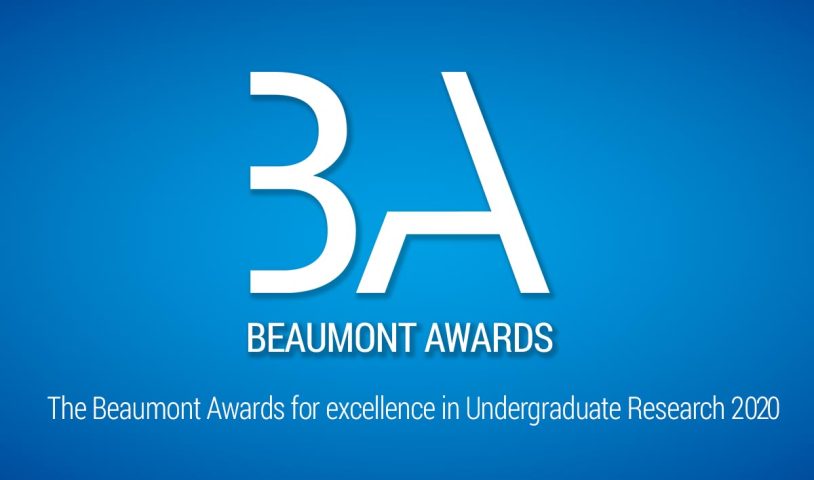Beaumont Awards 2020 winners announced
Now in its third successive year, The University of Leeds and aql Founder and CEO, Professor Adam Beaumont announced the winners of this year’s prestigious Beaumont Awards, an award scheme recognising the outstanding research projects conducted by students at the university that demonstrate the greatest potential impact on society and solve real-world problems. The awards scheme offers each winning student the chance to further progress their research and careers by introducing them to relevant contacts within industry and opening up potential opportunities to work with world-class organisations.
The awards reflect the University of Leeds’ commitment to research-led education and learning. The University of Leeds is among the top ten universities for research power in the UK and consistently supports its students to make a genuine impact on the world.
“Every year I’m amazed at the quality of research that is delivered and submitted to the awards, and this year is no different,” comments Professor Adam Beaumont, Founder and CEO of aql and sponsor of the Beaumont Awards. “From the many high-quality submissions received, we always look to uncover research projects that are potentially life changing and ones that address a real ‘problem statement’. The breadth of research from this year’s winners spans current real-world issues from predicting survival rates of cancer patients using AI to using advanced technology to monitor natural environments. The ten Beaumont Award winners have shown clear value, vision and passion to drive change in society and this is why they are being recognised.”
Sir Alan Langlands, Vice-Chancellor, University of Leeds said; “Research is an important part of the learning process for all students at the University of Leeds, and this year’s undergraduate research projects continue to be of a high standard that I’m sure will lead to some truly outstanding careers. Thanks to the Beaumont Awards we can continue to support our students long after they have graduated and help them kick-start their careers.
“We’re continuously grateful of the support and inspiration the Beaumont Awards gives our students. The quality of the winning research projects clearly demonstrates that students are wanting to drive change, and this is something that Leeds University wholeheartedly supports,” says Professor Tom Ward, Deputy Vice-Chancellor, University of Leeds.
Each winning student is awarded a cash prize of £500 and the opportunity to take a place on Leeds University’s Enterprise Boot Camp run by SPARK, a programme designed to support students to kick-start their start-up business from initial idea and beyond.
The 2020 award recipients and their winning research projects are as follows:
Megan Barnes
Faculty of Environment
Assessing the impact of leaky barriers on channel geomorphology in an upland setting using structure-from-motion and time-lapse imagery as monitoring techniques.
Amy Crompton
Faculty of Biological Sciences
Virtual reality and motor imagery in stroke rehabilitation.
Adam Jackson
Faculty of Engineering & Physical Sciences
Assessing the impact of leaky barriers on channel geomorphology in an upland setting using structure-from-motion and time-lapse imagery as monitoring techniques.
Benjamin Johnson
Faculty of Engineering & Physical Sciences
A smart robotic wrist orthosis for cerebral palsy patient rehabilitation.
Rosie Jones
Faculty of Engineering & Physical Sciences
A full-scale experimental study with implications for SARS CoV-2 to create “safe-zones” for healthcare workers whilst conducting patient care.
Sophia Liu
Faculty of Engineering & Physical Sciences
Predicting the survival of ovarian cancer patients using artificial intelligence.
Ryan Piggott
Faculty of Environment
The effect of broad-crested weir geometry on downstream channel hydraulics: A coupled physical-mathematical modelling approach.
Ashwin Sandeep
Faculty of Engineering & Physical Sciences
Numerical analysis of automotive brake pad wear.
Haydn Simper
Faculty of Engineering & Physical Sciences
Development of a physical simulation of the human defecatory system for the investigation of treatments for faecal incontinence.
Safiyyah Yacoobali
Faculty of Medicine & Health
Investigating the anti-biofilm effect of graphene-oxide (GO) coated titanium discs on Staphylococcus aureus* (S.aureus) *S.aureus is an aerobic bacterial species.


